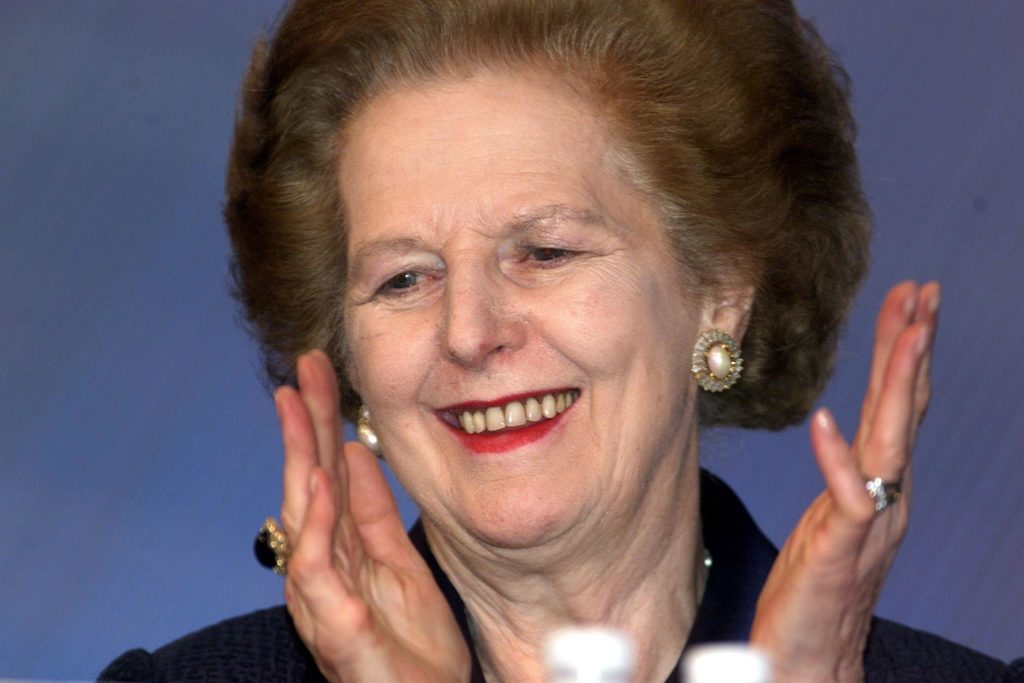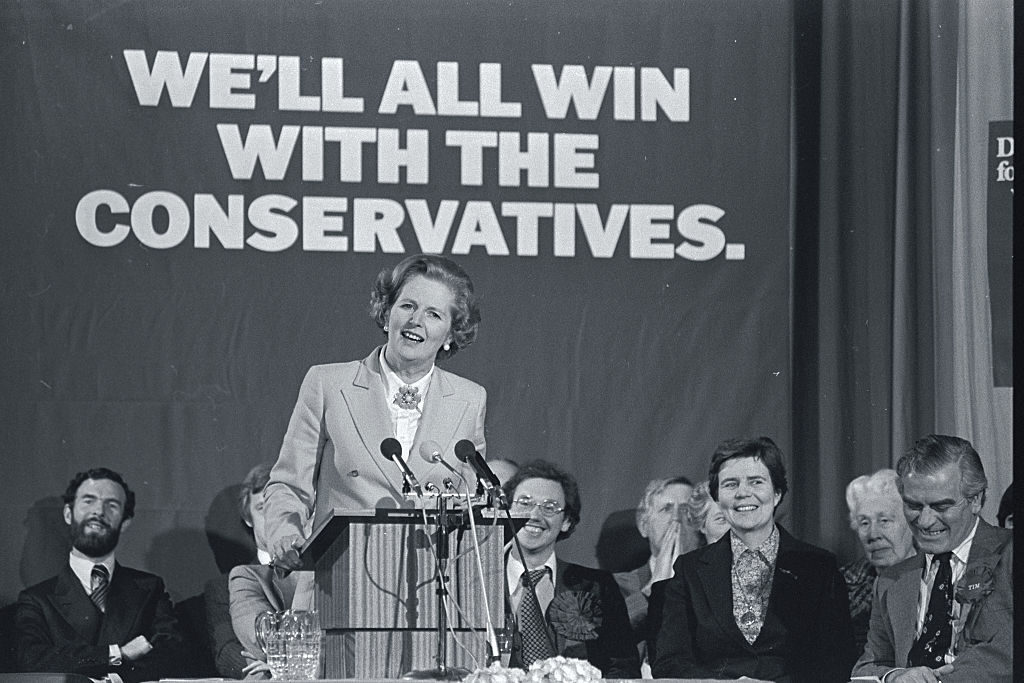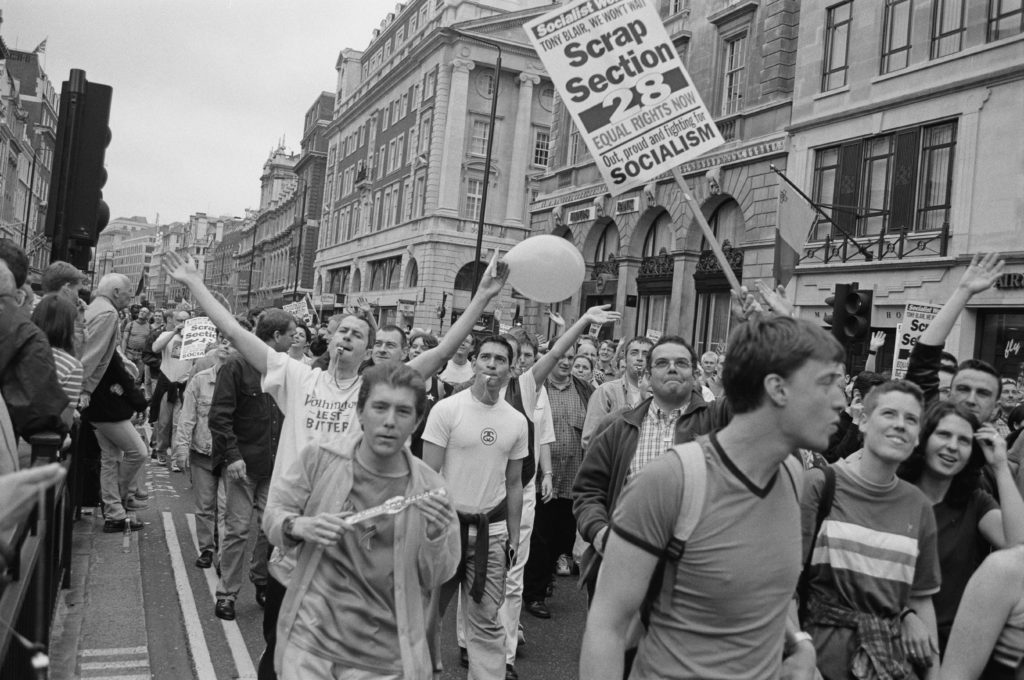The terrible, brutal history of Margaret Thatcher’s homophobic Section 28
It is 18 years today since the controversial and homophobic legislation known as Section 28, introduced under Margaret Thatcher, was repealed in England and Wales.
The clause – an amendment to the Local Government Act 1988 – banned local authorities and schools from promoting homosexuality and was brought forward by Thatcher’s government.
The legislation has been labelled “toxic and regressive” by deputy leader of the Liberal Democrats Ed Davey, who introduced the clause that led to its repeal, and told PinkNews that Section 28 left young people feeling “alone and vulnerable”.
“I am proud to have moved the clause that abolished Section 28 once and for all. But we still have so far to go,” Davey said, in 2019.
“From trans rights, to tackling the persistent discrimination faced by the LGBT+ community: the fight is far from over.”
Section 28 was introduced by Margaret Thatcher amid renewed anti-gay sentiment
More than three decades have passed since Thatcher’s government introduced the anti-LGBT+ legislation, but its shadow still looms over schools and local authorities in the UK today.
The legislation meant that councils were prohibited from funding of books, plays, leaflets, films, or other materials showing same-sex relationships, while teachers weren’t allowed to teach about gay relationships in schools.
This clause was the Conservative government’s vitriolic and traditionalist response to calls for equality from lesbian and gay rights activists in the late 1980s.

Thatcher captured these venomous anti-gay views in her infamous speech at the 1987 Conservative Party conference, which was met with rapturous applause.
“Children who need to be taught to respect traditional moral values are being taught that they have an inalienable right to be gay,” she said. “All of those children are being cheated of a sound start in life. Yes, cheated.”
LGBT+ activists railed against the legislation – but the government didn’t listen
On the day the clause was passed in the House of Lords, a group of lesbians abseiled into the House of Lords in protest, making national news broadcasts.
The legislation – so loathed, so reviled by supporters of LGBT+ equality – caused 20,000 Mancunians to take to their city’s streets to march against it. It also prompted Sir Ian McKellen to come out publicly as gay.
Section 28 was introduced following a difficult period for the LGBT+ community in the UK. There had been some progress, but the outbreak of HIV/AIDS led to the widespread demonisation of gay and bisexual men in the 1980s.
The Conservative Party capitalised on this anti-gay sentiment. In the run-up to the 1987 general election, they issued posters claiming that the Labour Party wanted LGBT+ friendly books like Young, Gay and Proud and The Milkman’s on His Way to be read in schools.
Children who need to be taught to respect traditional moral values are being taught that they have an inalienable right to be gay. All of those children are being cheated of a sound start in life. Yes, cheated.
In 1987, a British Social Attitudes Survey found that three-quarters of the population thought homosexuality was “always or mostly wrong”. Just 11 per cent said it was “never wrong”.
Just before the general election of 1987, the Earl of Halsbury introduced the Local Government Act 1986 (Amendment) Bill, also known as an act to refrain local authorities from promoting homosexuality.

This bill was successfully passed through the House of Lords, and even passed the first stage on the way to becoming law in the commons, but it went no further. Section 28 was not dissimilar to the legislation that the Earl of Halsbury tried to introduce.
The anti-LGBT+ legislation left teachers afraid to broach LGBT+ issues in schools.
Soon after the Tories were re-elected, Tory MP David Wilshire put forward an amendment to the new Local Government Bill – known first as Clause 27, and later as the notorious Clause 28 – based on the Earl of Halsbury’s Bill, which was subsequently passed through Parliament.

The night before Section 28 became law, a group of lesbians famously stormed the BBC’s Six O’Clock News in protest.
The effects of Section 28 soon became apparent, with some schools and councils shutting down LGBTQ+ youth support groups – and many teachers too afraid to teach about same-sex relationships.
The legislation was ultimately repealed in 2003, and David Cameron issued an apology for the harm it had done in 2009 – but despite this, its implications are still felt far and wide and teaching around LGBT+ issues still remains a taboo topic in many schools.
This year, Thatcher was portrayed by queer icon Gillian Anderson in the most recent series of The Crown. However, proving that Section 28’s horrific history can be all too easily forgotten, the show skipped over the issue entirely.